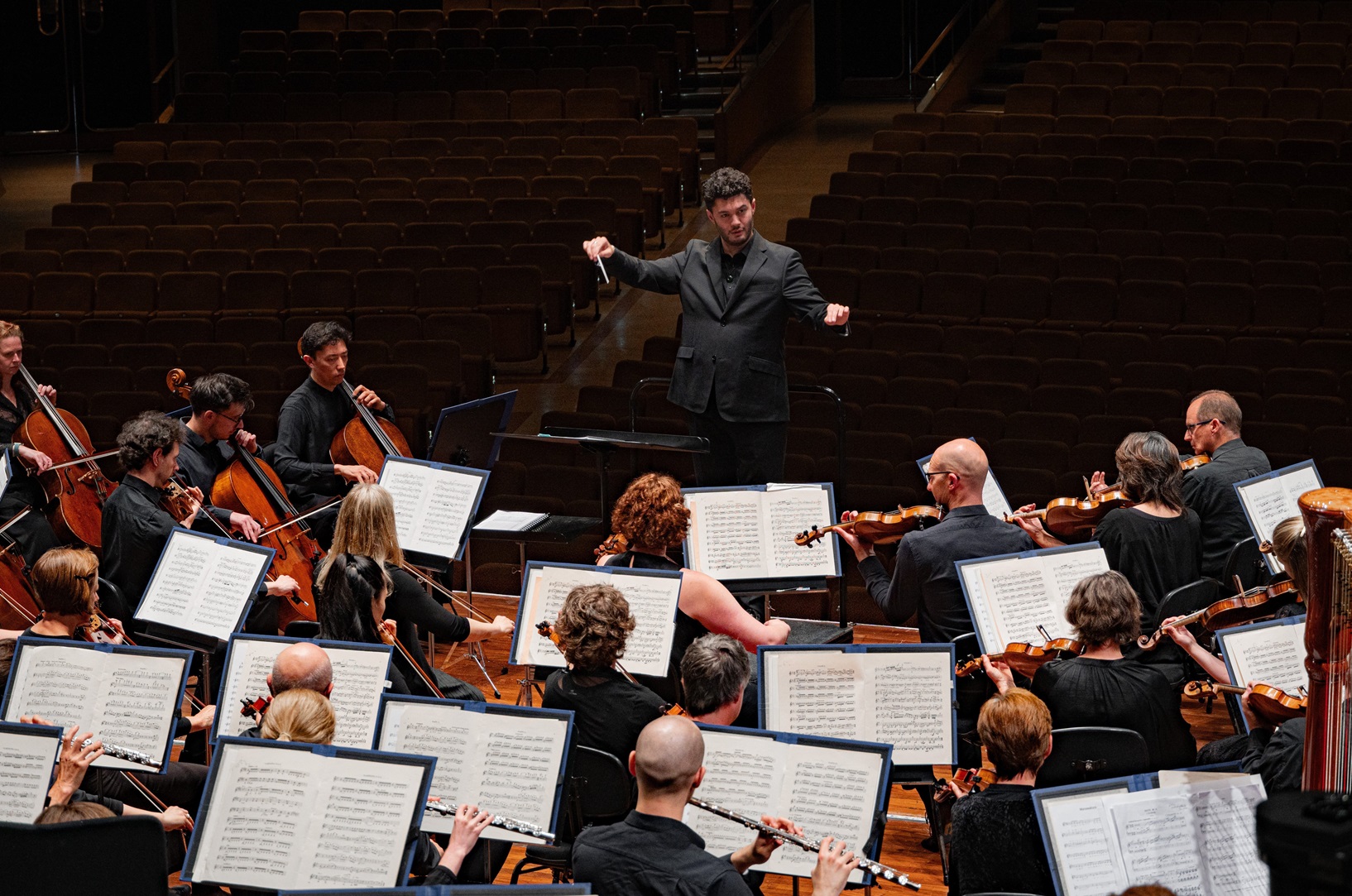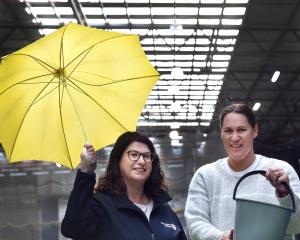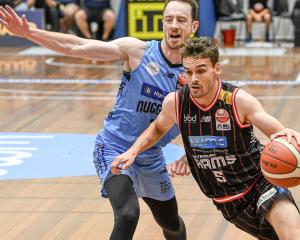
While he will always be a brass bandie at heart, Reuben Brown’s curiosity and love of exploring has led him to immerse himself in orchestral music.
"It just feeds the mind and feeds the soul. I love it and I love being able to learn and be a part of this world that the brass bands are not so much a part of."
Brass bands are where it really started for Brown who picked up his first instrument, a recorder, at Saturday morning music classes. Then he tried out the cornet and the euphonium when well-known tutor Kath Herman, also an itinerant brass teacher and player, suggested he go along to band practice one day.
"I did, and I ended up being there for probably six or five years with the Invercargill Brass Band. Which was really exciting and really tremendous.
"I mean, I wasn’t very good when I started, of course, but I started in the auxiliary band or the junior band, and then by the end of it I was playing two instruments with the senior band, percussion and euphonium."
The euphonium appealed as he was able to get the most range and sounds.
"People refer to it as as the cello of the brass band which I agree with as it’s got a certain mellow, yet melodic sound. It’s a vibrant and colourful instrument and you can hear it above other brass instruments. It’s just got an immense range and capabilities, especially in some of the best hands out there ... They can really make that thing sing."
The brass band community kept him enthused and interested. He auditioned and got into the national secondary school brass band and competed with Ascot Park Hotel Brass, Invercargill’s A-grade band at a national level.
"That also helped to solidify that this is the space that I want to be working in and enjoying and spending my time and putting my effort into this sort of stuff."
It was because the euphonium did not have a lot to do in the ensemble at his high school James Hargest College that he thought he’d give conducting a go when the opportunity was offered.
"It kind of latched on. And my teacher there, Mrs Little, she was very supportive and encouraging of me."
A year later he was offered the opportunity to conduct the major production for the year, Brigadoon.
"That was my first proper performance as a conductor."
Brown began to get opportunities to conduct other ensembles, brass bands and a few songs with the Invercargill Symphony’s performance of Handel’s Messiah.
"It just started to pile on and I became quite interested and curious as to what else I could get into with that sort of stuff."
So Brown moved to Wellington to study euphonium and conducting at the New Zealand School of Music. He studied under composer and conductor Ken Young, a former Mozart Fellow who was also born in Invercargill.
"I learned a lot from [him] and maintained to stick a lot of the directions he gave me and habits that he either taught or knocked out of me."
Transitioning from brass to orchestral music has been a "curious endeavour". He chose the move because of the range of music and repertoire available.
"There’s just an enormous catalogue out there and it still continues to grow. I think I’m always going to be a brass bandy at heart.
"I love the music that they have there and I love being able to perform in ensembles like that.
"But I also am just so curious and love to explore the repertoire that gets put on by orchestras because it’s just an immense amount.
"It just feeds the mind and feeds the soul. I love it and I love being able to learn and be a part of this world."
He did some independent study programmes while taking as many opportunities to conduct university ensembles whether, brass, orchestral or symphonic.
Brown also joined the Wellington Brass Band when he moved to the city. It is the country’s top band with a great range of musicians from students to professionals. He became its assistant musical director while he was studying and recently conducted the band for an entirely New Zealand music programme to champion the Wellington District Contest for the second year running.
He has also worked with Dunedin’s St Kilda Brass Band, taking them to a district contest, and last year was the musical director for the inaugural Dunedin Youth Brass Band.
"It was good to play with musicians that were of a similar age to me, or mostly younger ... but they were keen to just be a part of this programme and make music with people their own age."
He has been the conducting fellow at Te Tira Pu oro o Aotearoa New Zealand Symphony Orchestra, as well as the organisation’s artistic administrator.
"They have not only an astounding array of musicians, but their administration staff and the faculty behind there is super, super impressive and I learnt a lot."
The administration role had been an eye-opener in finding out how the industry works and the logistics involved in running a symphony orchestra.
As the fellow, he had the chance to learn from some of the best in the field from New Zealand conductors and visiting international conductors.
"I’ve got a journal that’s sitting opposite me that I filled out with everything that we did in those sessions.
"At the end of the three years, I got to the very last page and it was quite a moment, you know, quite an achievement to think, wow, I’ve spent this whole time learning and educating myself with a myriad of different conductors and artists.
"We had guest conductors from Germany and England and of course our very own Kiwi conductors would also be a part of that as well.
"I’m also going to shout out Hamish McKeich and James Judd. They were our mentors over the three years in that programme and I definitely would not be where I am without their advice and their criticism, and their willingness to see me succeed."
He remembered assisting German conductor Andre de Ridder doing Beethoven 5.
"He again was brilliant at offering criticism and instruction and really trying to get the most out of what we were offering.
"I’ve tried to spend time with him when he’s been back in New Zealand and he’s been very kind and offering his wisdom and his generosity with time."
Brown also assisted Gemma New, the orchestra’s conductor and artistic adviser, working with her across last year’s Jupiter concerts and The Planets.
"That taught me a lot about the role of a conductor and the role of how they need to approach rehearsing ... with a 90 to 80 to 100-piece ensemble with each who have their own creative ideas, and how to find a way through all of that whilst being true to the vision that you yourself have. So that was a wonderful opportunity to spend time with Gemma."
It also gave him the opportunity to make his conducting debut with the New Zealand Symphony Orchestra’s Christmas Brass at Te Papa Museum of New Zealand.
"When I stood up there for the very first time, I still remember my legs shaking and that was incredible just having the power of all these talented musicians trying to do well by me."
Other pinch-me moments included his audition for the role as New Zealand conductor in residence on his 25th birthday while feeling a bit sorry for himself, especially when he found out his friend — a percussionist in the Auckland Philharmonia — was not playing.
"It was a crazy day. There was a moment on the podium that day, Die Fledermaus Overture by Richard Strauss. There’s a moment where the trombones and the tubular bells at the back of the percussion section where they have a little chorale moment.
"I give the trombones their cue and look up at the bells and there’s my friend Dominic standing there ready for me.
"I just start smiling and I just kind of relax, I was able to free the tension that riddled my body of nerves and worry."
Brown was happy with his performance and it was topped off with the orchestra playing him Happy Birthday as he walked off.
"That was a real treat as well."
He was awarded the residency, in which he is hosted by the Auckland Philharmonia but also shared by Dunedin and Christchurch’s symphony orchestras.
"In this role, I’m fortunate enough to attend all the rehearsals, meet and converse and discuss with the visiting artists and conductors."
Spending time recently with Umberto Clerci when he was in New Zealand, including at his Dunedin concert, was "brilliant".
"He has this complete understanding of how they view music and how they view rehearsing as a semi-professional orchestra. He has just the total command of the repertoire and of being a personable leader.
"I learnt a lot from him about understanding ... reading a room and reading how these people want to be, how they want to work or make music."
Only two months into the new role and he is excited about what is to come, and the "incredible stack of music" he has to learn such as the recent Enigma concert featuring Elgar’s Enigma Variations and the premiere of James MacMillian’s Concerto for Orchestra.
"It’s an incredible, incredible piece. There’s bits of it that sound like a brass band piece of music so I quite like it.
"I quite like some of the atmospheres that evoke the very brass bandy, which is fun for me."
Brown has also been selected as one of 12 emerging classical music talents to take part in the Whakatipu Music Festival’s young artist programme this Easter which also includes Arrowtown countertenor Austin Haynes.
He will get to take part in career development workshops and take part in public performances.
Proud of coming from Invercargill, Brown was looking forward to performing in Queenstown.
His parents would be in the audience and then he would head home to the southern city to catch up with friends and his grandmother.
As to what the future holds, Brown knew it would involve travelling overseas to further his studies and career. The sheer number of opportunities to conduct the basics of the classical repertoire overseas meant he would get opportunities harder to get in New Zealand.
"Because I think that’s where a conductor really cuts their teeth in that sort of music. You do really need to know everything in a Mozart symphony or in a Haydn symphony or concerto. So I’d like to be doing that sort of stuff to help me build my foundations of musical understanding. So that’s the five year goal."













